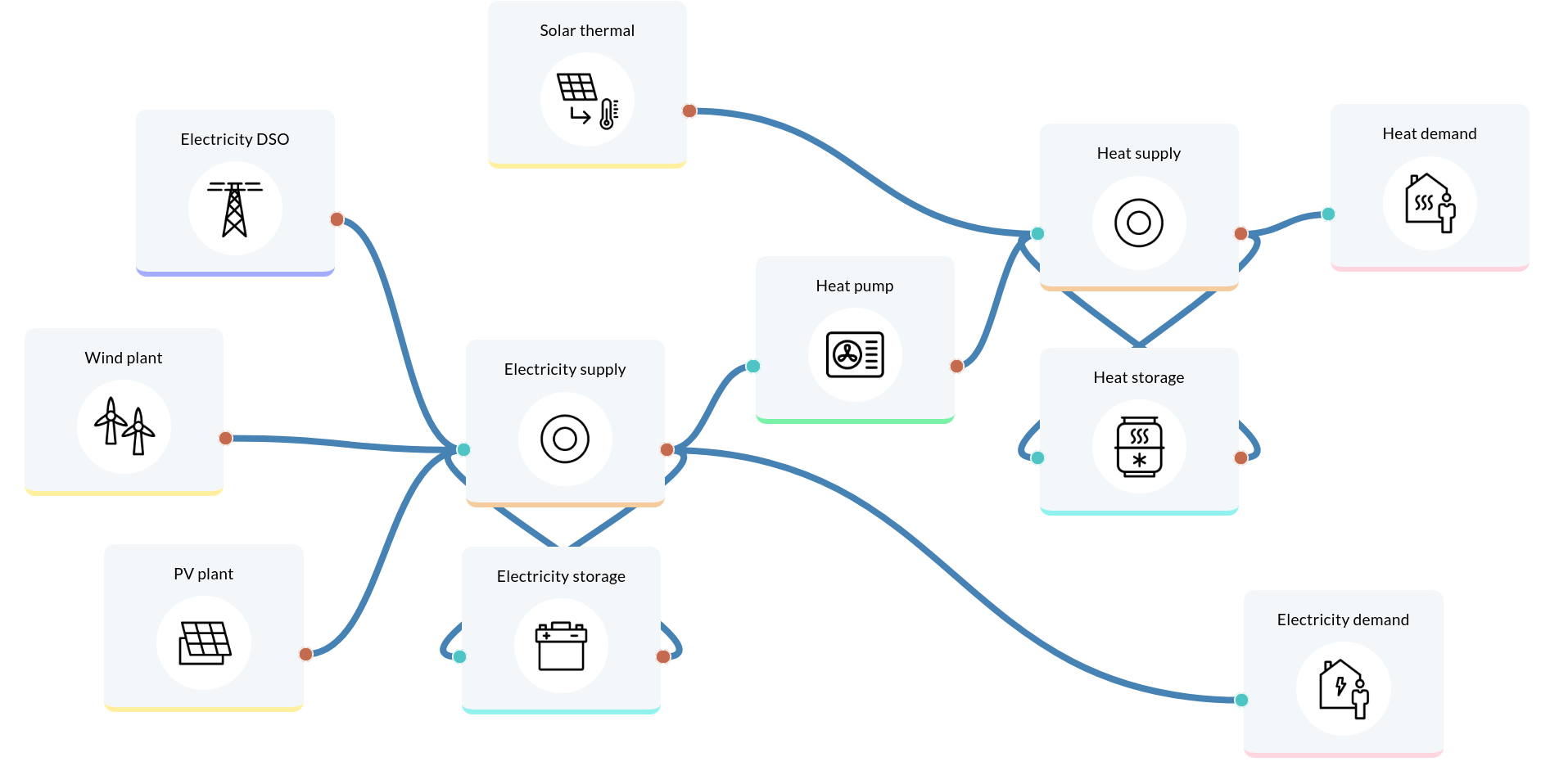open-plan-tool¶
The open-plan-tool is an open-source tool for designing and optimizing multi-energy carriers energy systems and operational strategies for the supply of neighborhoods, industrial parks and industries.
Its versatility allows you to create different projects and scenarios. You will be able to evaluate different cases and compare results between scenarios with just a few clicks. We also provide you with some use cases that can serve as a reference for your own projects.
Modeling your energy systems has never been so easy before, the tool was developed with a strong focus on easy use without requiring programming language expertise. Using modular components, you can configure your energy system.

You will be asked to provide the required data via individual data, a collection of csv files or a unique JSON file with particular format. The input data is split into the following categories: Project description, which entails the general information regarding the project (country, coordinates, etc.), as well as the economic data such as the discount factor, project duration, or tax; System configuration, in which the user specifies the technical and financial data of each asset; Constrains, are a fundamental part of the definition of the linear problem and describe the degree of autonomy and the share of renewable energies. This set of input data is then translated to a linear programming problem, also known as a constrained optimization problem. The open-plan-tool is based on the multi-vector simulator (MVS), which in turn is based on the oemof-solph python library, with which a problem is described by specifying an objective function to minimize annual energy supply costs, decision variables and limits and constraints.
The simulation outputs are also separated into categories: KPI indicators, economic results and technical results (that include the optimized capacities and dispatch of each asset).
Explore what open-plan-tool has to offer:
Online tool: open-plan-tool
Publications: List of publications
GitHub: Online Repository
Youtube: Watch Our Videos
The open-plan-tool project consortium is composed of the Reiner Lemoine Institute (RLI), German Solar Energy Society [Deutsche Gesellschaft für Sonnenenergie (DGS)] and the Potsdam Institute for Climate Impact Research. It is funded within the framework of the “Technology-oriented systems analysis” funding area of the BMWi’s 7th Energy Research Programme “Innovation for the energy transition”.
The open-plan-tool project complements other previous open-science research projects of RLI, such as open_eGO (OpenEnergyPlatfrom), open_FRED (feed-in time series on OpenEnergyPlatform) and enables the comparison, validation and improvement of energy system modelling.
Maintainers¶
The open-plan-tool is currently maintained by staff from the Reiner Lemoine Institute the Potsdam Institute for Climate Impact Research and the German Solar Energy Society.